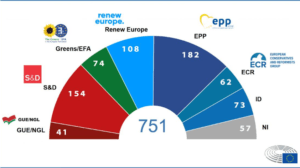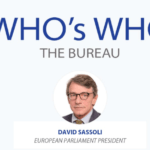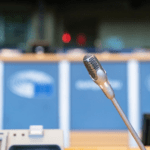Ever since the results of the European elections have been in, newly-elected MEPs have been organising themselves into political groups, which bring together representatives from different EU countries based on their political affinities.
According to Parliament rules, a political group must be composed of at least 25 MEPs from at least one-quarter of member states (at the moment that would mean from at least seven countries). MEPs can belong to only one political group, but may choose not to belong to any; they are then called non-attached. Currently, 57 MEPs have opted not to join a political group.
Political groups can be formed at any time during the term. So far, seven have been recognised as fulfilling the necessary criteria.
Political groups enjoy certain advantages: they play an important role in setting the Parliament’s agenda, are allocated more speaking time during debates and are also allocated more office space, staff and money. They also decide on the set up of parliamentary committees and delegations.
Below are the political groups in order of size as of 2 July 2019:
- Group of the European People’s Party: 182 members. Led by Manfred Weber (Germany), who has been re-elected four times as an MEP and has chaired the group since 2014.
- Group of the Progressive Alliance of Socialists and Democrats: 154 members. Led by Iratxe García (Spain), who has been an MEP since 2004.
- Renew Europe group: 108 members. Led by Dacian Cioloș (Romania), who debuts as an MEP in this term. Previously, he was Commissioner for Agriculture in 2010-2014 and is a former Prime Minister.
- Group of the Greens/European Free Alliance: 74 members. Led by Ska Keller (Germany), MEP since 2009 and co-chair of the group since 2016, and Philippe Lamberts (Belgium), MEP also since 2009 and co-chair since 2014.
- Identity and Democracy: 73 members. Led by Marco Zanni (Italy), MEP since 2014.
- European Conservatives and Reformists: 62 members. Led by Ryszard Legutko (Poland), MEP since 2009 and group co-chair since 2017, and Raffaele Fitto (Italy), who was MEP between 1999 and 2000, and again since 2014.
- Confederal Group of the European United Left/Nordic Green Left: 41 members. Led by Martin Schirdewan (Germany), who is the acting president until the group elects its leader. He has also been an MEP since 2017.
More information
Access the news







Leave a Reply